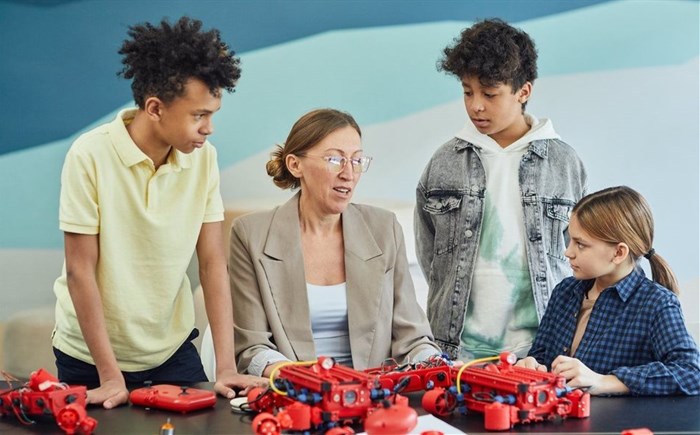






Innovations such as DBE-E3, the Department of Basic Education's flagship programme, on Project Based Learning (PBL) is an attempt to change South Africa's education crisis. While most academic curriculums focus on the core academic subjects, which still remain important, many learners aren't gaining the skill sets required to seamlessly integrate into the business environment.
PBL often gets dismissed because it’s perceived as “yet another thing on the educators already overfilled plates. However it is about reorganizing the plate. But what does it look like to “reorganize your plate” in a way that might help alleviate some of the seemingly insurmountable challenges you face daily?
PBL is often seen as too time-consuming to plan or implement. Who has time for that? It sounds exhausting before even getting started. What if you collaborated with a colleague (let’s say you teach math, and they teach English language arts) to create a project that focused on using your specific content areas to impact or promote change locally?
DBE-E3’ s programme in South Africa, seeks to equip educators to prepare learner to be solution-seeking active participants in the world after school. We live in a project-based world. Think about it. Whether you’re planning a virtual field trip or creating the perfect work-from-home space, you’re working on a project.
In fact, many of us organise our tasks by projects and work collaboratively with other teams and colleagues to solve problems. DBE-E3 aims to bring authentic learning into the classroom so that learning has real-life applications and thus real meaning to learners.
Not only could collaborating help lighten each of the lesson planning and grading loads, but also it could empower students by highlighting just how real learning can be. Imagine the rewards you’ll gain from collaborating on a project’s creation, coordination, and presentation with colleagues.
When classroom norms and expectations are understood—in most cases cocreated with students—it promotes both clarity and buy-in from the beginning. When students work in collaborative groups, a structure that provides additional support when clarification is required, they experience individual and team accountability through creating shared products.